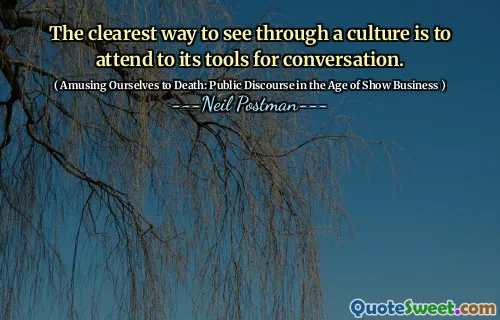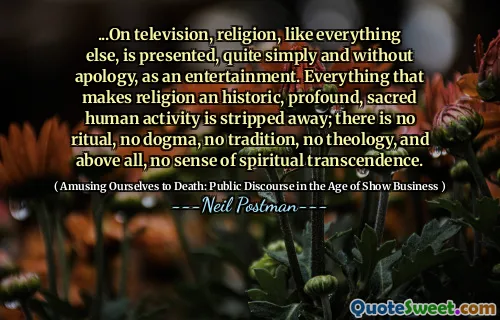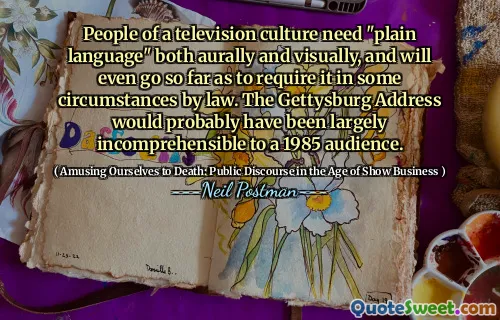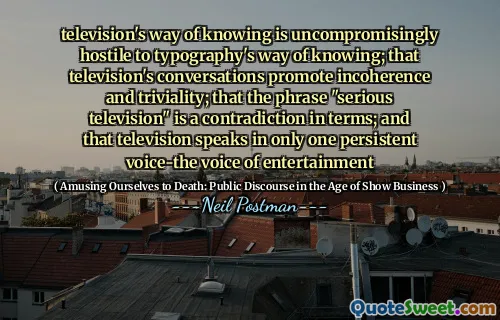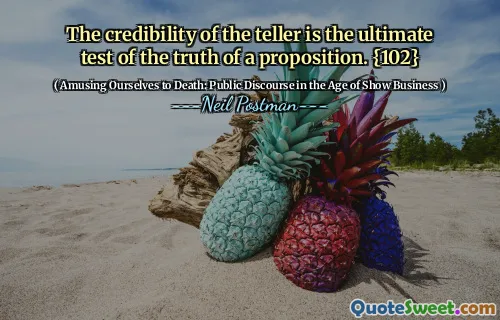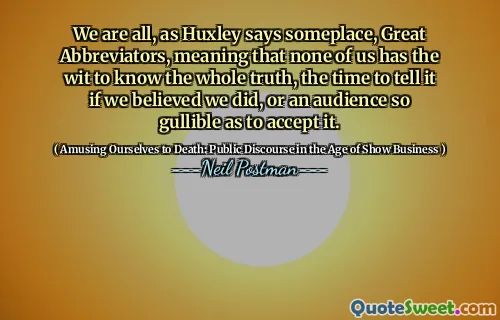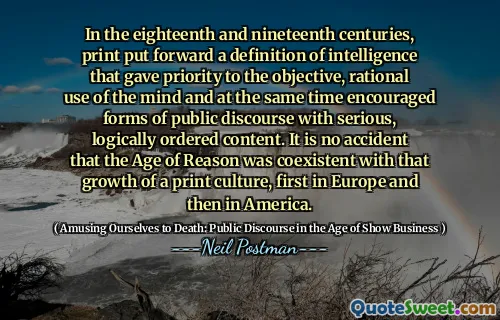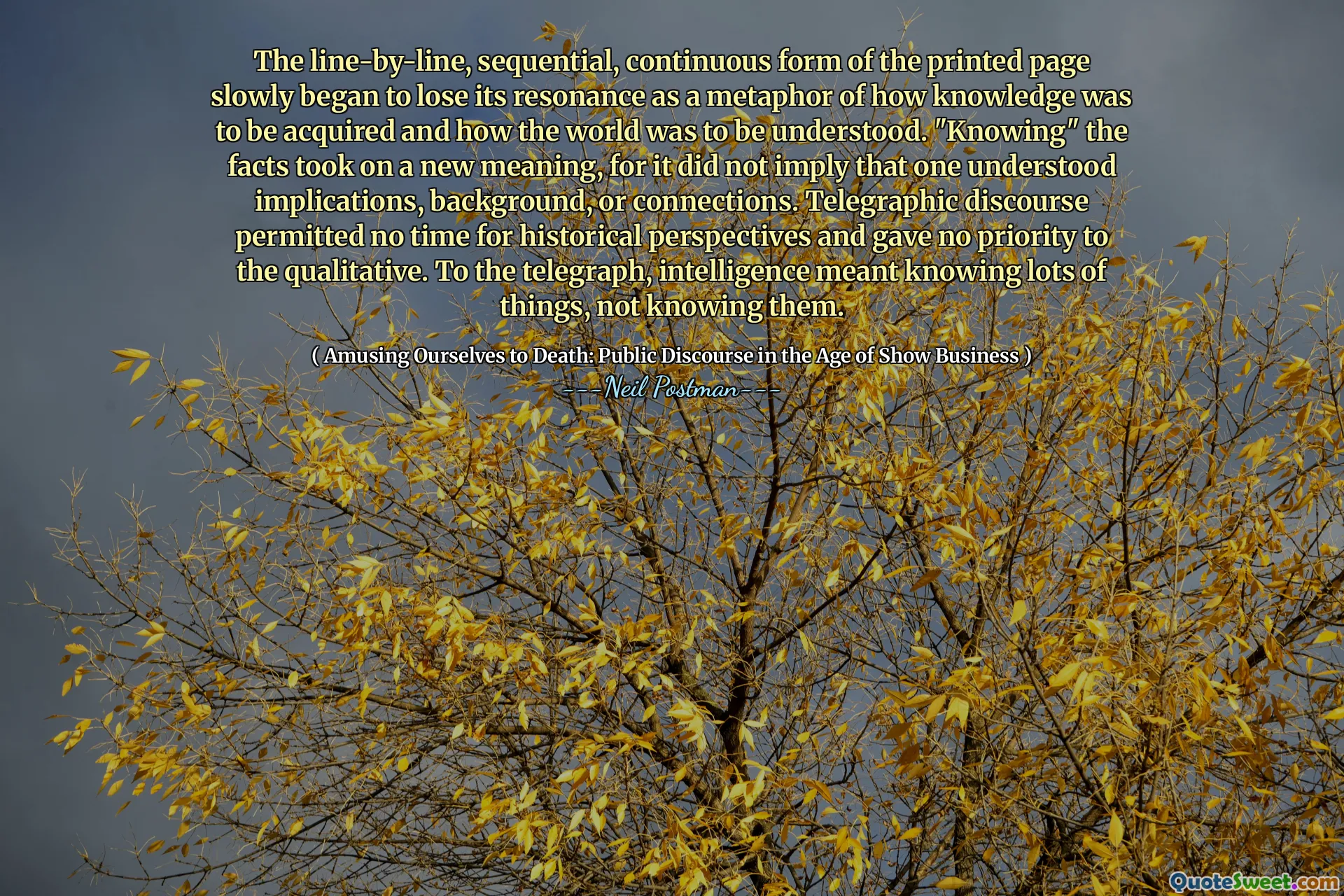
印刷页面的逐线,顺序连续的形式开始逐渐失去共鸣,这是对如何获得知识以及如何理解世界的隐喻。 “知道”事实具有新的含义,因为它并不意味着一个人理解含义,背景或联系。电报的话语不允许时间进行历史观点,也没有优先考虑定性的优先事项。在电报上,智力意味着了解很多东西,不知道它们。
(The line-by-line, sequential, continuous form of the printed page slowly began to lose its resonance as a metaphor of how knowledge was to be acquired and how the world was to be understood. "Knowing" the facts took on a new meaning, for it did not imply that one understood implications, background, or connections. Telegraphic discourse permitted no time for historical perspectives and gave no priority to the qualitative. To the telegraph, intelligence meant knowing lots of things, not knowing them.)
在尼尔·邮递员(Neil Postman)的“让自己死亡”中,他讨论了在电信交流主导的时代感知知识的转变。传统的印刷页面曾经是通过其全面,顺序结构来理解和获取知识的丰富来源,其意义降低了。当代沟通没有强调知识的深度,而是优先考虑快速,事实信息,这通常与上下文和更深入的理解脱节。
此更改从理解复杂的联系和仅积累信息的含义中重新定义了“知道”。电报话语的快速而分散的性质不允许进行历史背景或定性评估,从而表彰对事实的表面掌握。因此,智力的度量从深层理解转变为人们可以回忆的信息广度,强调了公共话语质量的潜在下降。
